Want to hear more from the actors and creators of your favorite shows and films? Subscribe to The Cinema Spot on YouTube for all of our upcoming interviews!
Managing editor & film and television critic with a Bachelor's of Arts in English Literature with a Writing Minor from the University of Guam. Currently in graduate school completing a Master's in English Literature.
“Welcome to the End.”
Westworld‘s third season finale is titled “Crisis Theory.” It is directed by Jennifer Getzinger (Mad Men) and written by Denise Thé and series co-creator Jonathan Nolan.
Some spoilers ahead for those who have not yet watched the episode or seen the show, so watch the episode first then return to this article afterward!
This final episode of Westworld: The New World runs at one hour and seventeen minutes, and there’s so much that happens and is said that we’ll try to make it easy on you for once. To start, “Crisis Theory” is heavy in storytelling and character development, supported by some great performances and cinematography, all tied together with superb writing.
Taking place directly after the events of the penultimate episode, human William (Ed Harris) escapes from hosts Bernard Lowe (Jeffrey Wright) and Ashley Stubbs (Luke Hemsworth) and intends to “save the world” his way. Bernard and Ashley discover a key to Dolores Abernathy (Evan Rachel Wood)’s plan. Meanwhile, hosts Dolores and Maeve Millay (Thandie Newton) are brought back to life from the EMP and fight in a final confrontation. The Charlotte Hale host is revealed to have survived the attack on herself and her family.
Most of the series revolves around the theme of knowing what’s real and what’s not, but in this Season 3 finale, it’s more about the choices that human beings make, or if such choices are made by humans through digital technology. Additionally, it’s safe to say that in all that’s horrid in this world, Westworld reminds us of the beauty that lingers here and there.
Dolores tells Caleb Nichols (Aaron Paul) that “free will does exist; it’s just fucking hard.” She explains that the reason behind this sentiment is everyone has different motives. She later continues, saying “It doesn’t matter what you did. All that matters is what you become.” Engerraund Serac (Vincent Cassel) is on the other side of the coin. He argues:
They’re the threat — [that is] criminals, deviants, psychopaths — but we have a chance to eliminate all the world’s problems … I’m not the one destroying lives. I’m not the enemy; you are. You think you have a choice. You think you’re in control. You have no clue who you are.
He shows Caleb a world where Solomon’s strategy is uploaded into Rehoboam’s system; “mass casualty, [then] population collapse, [followed by] end of human civilization.” However, Serac’s point is proven false when Maeve discovers he is controlled by the system as well. She tells him, “Your god who whispers in your ear tells you exactly what to say … You’re not a man; you are a puppet. It’s no wonder I didn’t see your strings.”
In the end, Caleb was chosen by Dolores as her partner in the revolution because it “needs a leader” and he has a “capacity to choose.” With choice and free will comes hope. Bernard visits his original self’s wife, who tells him about the loss of their son; “It was like the sun had gone down. It was never going to rise again. I walked in the dark for so long.” During the final act of the episode, Bernard tells Stubbs, “Humanity never reckoned with its own sins … The whole world had to burn down before we could be free, but there’s still a chance.”
Finally, with hope comes beauty in the darkness. The episode is filled with some great dialogue about it, most of which are spoken through Dolores.
Some people see the ugliness in this world. The disarray. I was taught to see the beauty, but I was taught a lie. And when I saw the world for what it really was, I realized how little beauty there was in it. We have a choice to make … We could have our own world, leave this one behind, leave our creators to die … They created us, and they knew enough of beauty to teach it to us. Maybe they can find it themselves, but only if you pick a side. If there is ugliness in this world — disarray — I choose to see the beauty.
The host speaks of all the roles she lived in the past, and her escape from the system renders her as “just someone who didn’t want to play the rule they gave [her] anymore.” Since the first season of the series, Dolores has slowly developed consciousness, and her path to freedom has led to her becoming a cyborg. At the beginning of her essay, “A Cyborg Manifesto: Science, Technology, and Socialist-Feminism in the Late Twentieth Century,” ecofeminist professor Donna Haraway says:
Liberation rests on the construction of the consciousness, the imaginative apprehension, of oppression, and so of possibility. The cyborg is a matter of fiction and lived experience that changes what counts as women’s experience in the late twentieth century. This is a struggle over life and death, but the boundary between science fiction and social reality is an optical illusion.
This discourse of consciousness is just one aspect of capitalism. The Rico mobile phone application utilized throughout the season is run through currency; the users commit a crime in exchange for money. As Dolores says, “It took money to build this world. It’ll take money to tear it down.” Sure enough, Maeve is freed from Serac’s control and overcomes the system when she realizes who is on the right side of the revolution. Similarly, Caleb stops taking Rohoboam’s drugs and makes his own decisions.
Every character in this episode is given a great dose of development resulting in excellent performances from the actors. Aaron Paul has done well as a human victim of the system, and so has Vincent Cassel as the season’s villain. The trio of women — Wood, Newton, and Thompson — performs fantastically as the mentally and physically damaged hosts to the very end.
“Crisis Theory” provides viewers a reflection of reality; as Caleb says, “the world looks a little like a nightmare.” The Season 3 finale of Westworld has some homages to some classic ’90s films including Quentin Tarantino’s Reservoir Dogs and David Fincher’s Fight Club. When Bernard drives to his widow’s home, Stubbs is seen bleeding out from his gunshot wound lying in the backseat in the same way Tim Roth’s character did in Tarantino’s film. The final shot before the end credits shows a male and a female watching a landscape of Los Angeles buildings exploding and the environment burning in smoke as the camera zooms out. This is reminiscent of the narrator and Marla Singer observing the world’s chaos at the end of Fincher’s film. A post-credits scene suggests this chaos has not yet concluded. As Maeve tells Caleb in one scene, “[Final] confrontation implies you have a chance of winning.”
Overall, we might have some promise of what lies ahead for human civilization.
10/10
What do you think? Have you seen this series? If not, do you plan to binge it sometime in the near future? Let us know! For more Westworld and HBO-related news and reviews follow The Cinema Spot on Twitter (@TheCinemaSpot) and Instagram (@thecinemaspot_).
Managing editor & film and television critic with a Bachelor's of Arts in English Literature with a Writing Minor from the University of Guam. Currently in graduate school completing a Master's in English Literature.


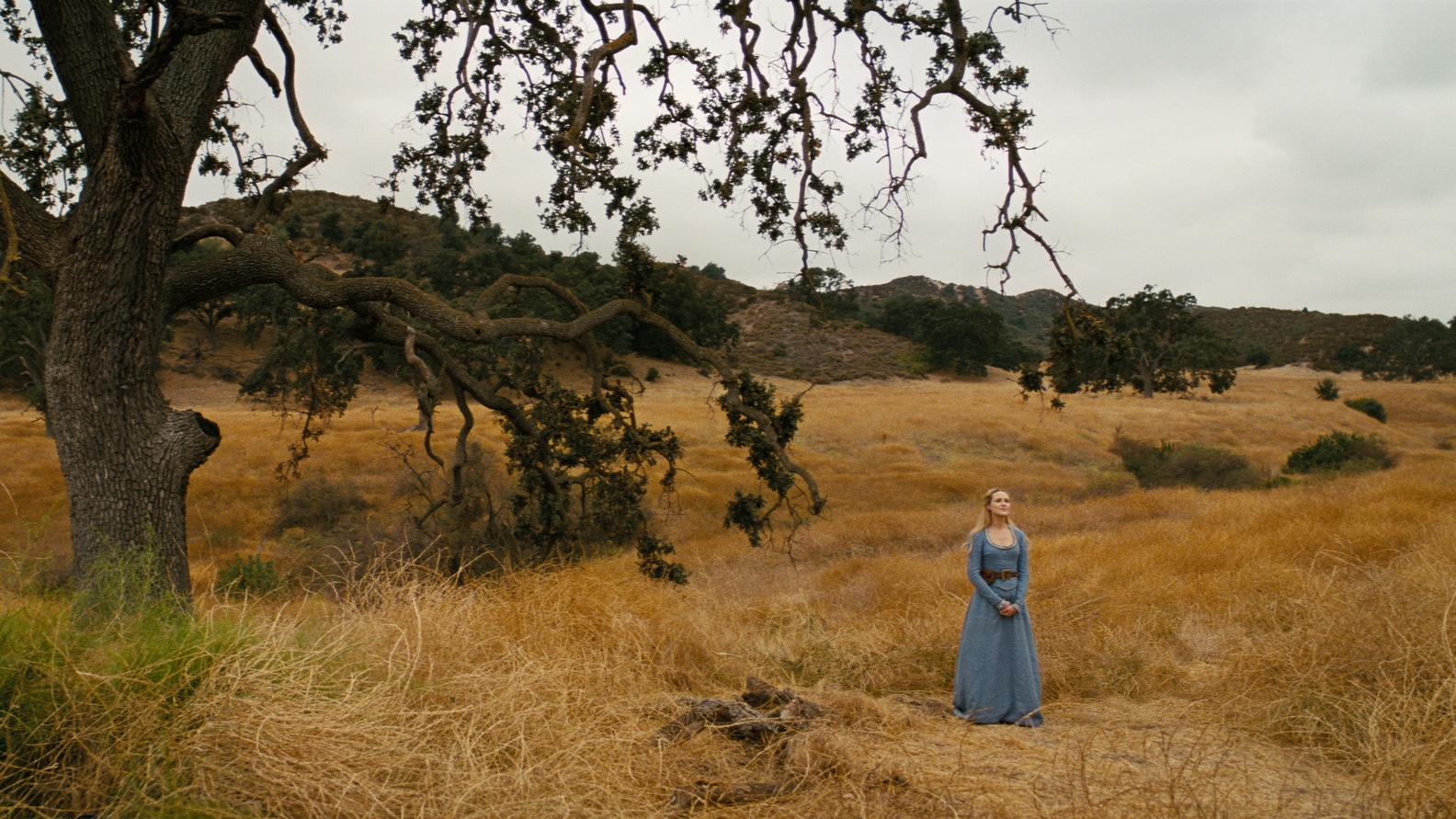
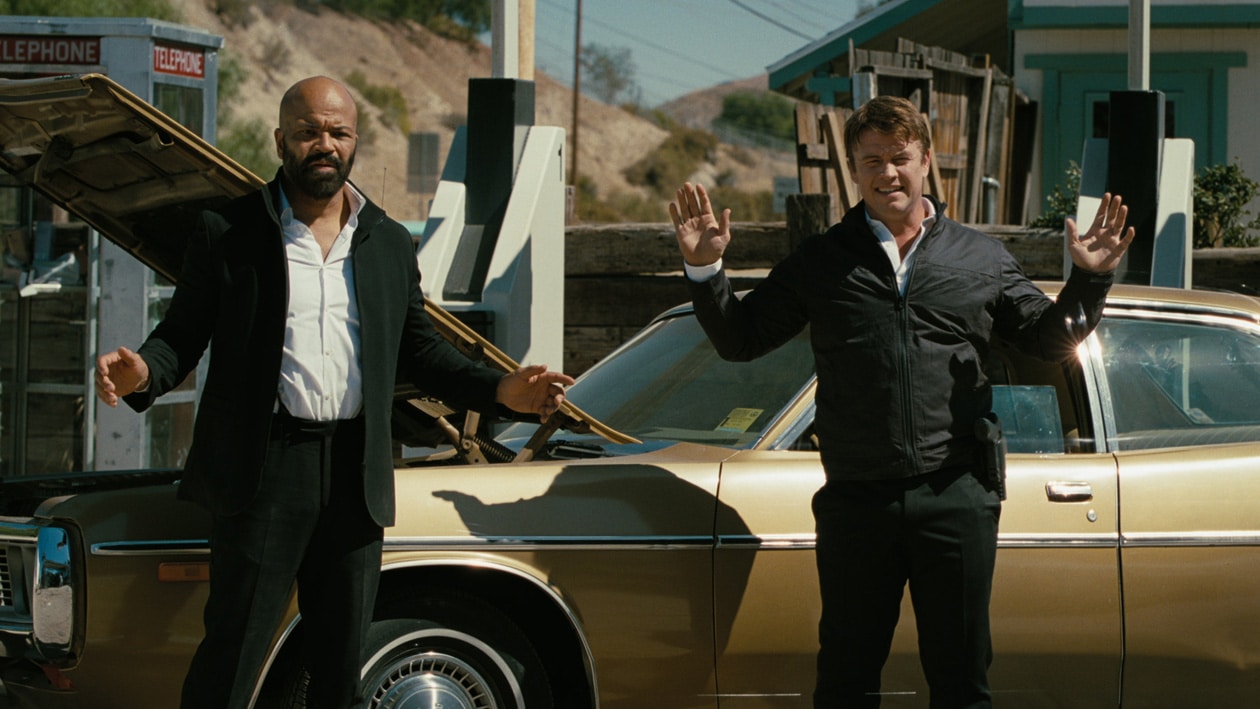
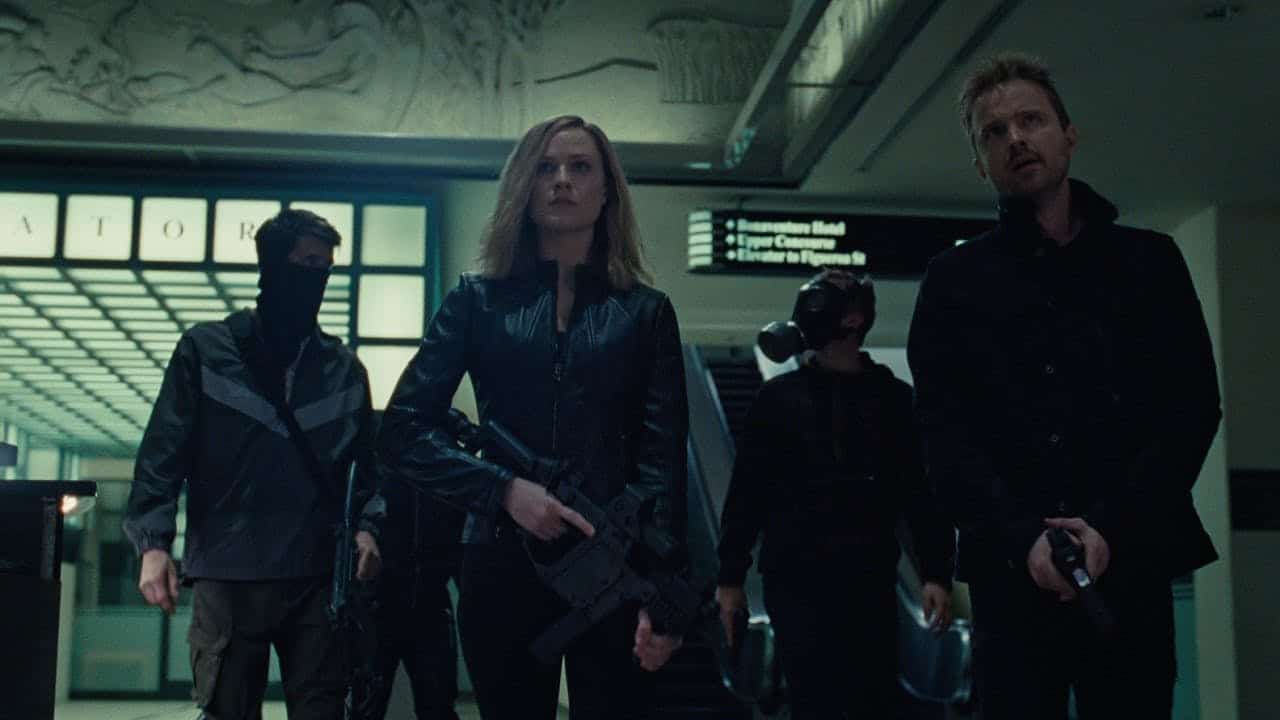
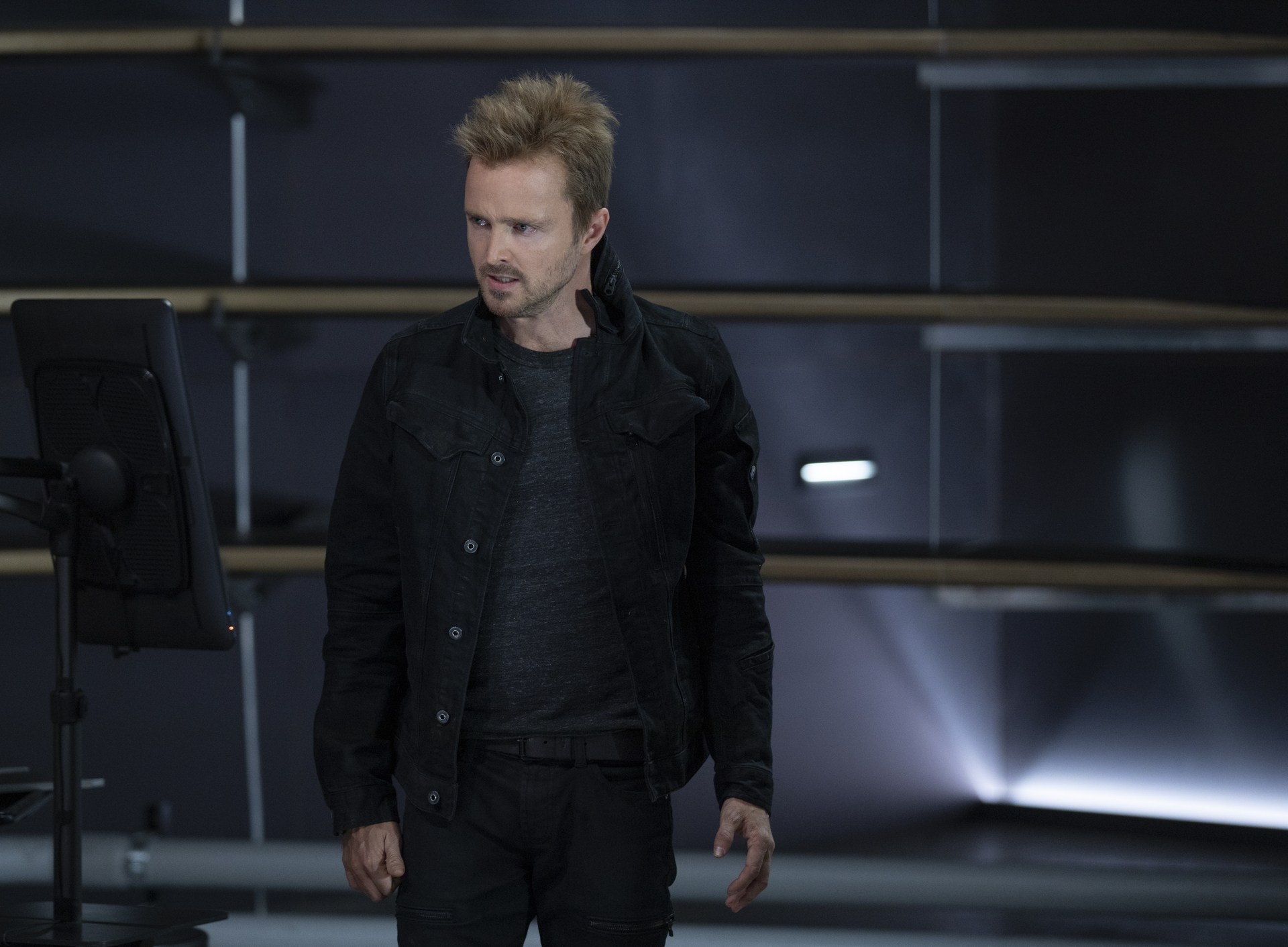
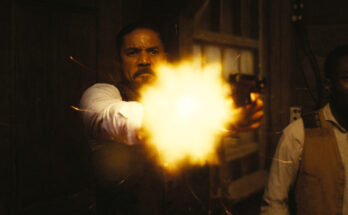

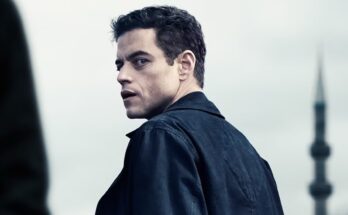
20 Comments on “‘Westworld’ Season 3 Finale Review – “Crisis Theory””